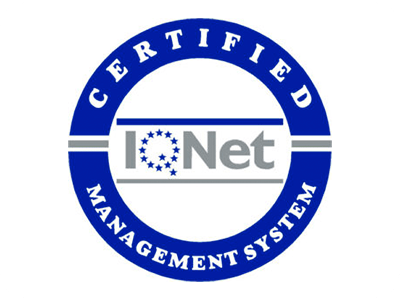What Every B2B Business Should Know About AI Implementation
6th June 2025

AI is no longer a futuristic concept reserved for Silicon Valley giants or tech-savvy startups. It’s here, and it’s transforming how businesses across industries operate, including B2B companies. Yet, despite the widespread buzz, many B2B executives and decision-makers like yourself are still uncertain about how AI can truly help their business.
You might be aware of AI’s potential, but the specifics of how it fits into your unique business model remain unclear. The truth is, implementing AI is not a one-size-fits-all process. It requires more than just adopting shiny new technologies. It’s about strategically integrating AI into your business in a way that drives real, measurable value.
In many cases, B2B companies are sitting on untapped opportunities because they’re simply unaware of where AI can make the biggest impact. So, let’s skip the fluff and dive into the valuable nitty-gritty: what you need to know to make AI work for your B2B business.
Identifying the Right AI Use Cases for Your B2B Business
AI can do a lot, but here’s the catch: Not every process in your business needs AI. Many B2B companies hesitate to dive into AI because they’re unsure where it can be most effective. Often, businesses might not realize that AI is particularly well-suited to solve some of their biggest pain points.
Instead of being overwhelmed by AI’s capabilities, focus on identifying specific problems or inefficiencies in your current operations. Are there areas where manual tasks are eating up too much time? Are you drowning in customer data without knowing how to make sense of it? In many cases, AI can step in to handle tasks that seem tedious or unsolvable, but B2B businesses may not be aware of this potential.
Start by focusing on use cases that align with your business objectives and prioritize AI projects that deliver a clear ROI. For instance, many B2B companies use AI to enhance lead generation, analyzing customer data and identifying high-potential prospects. Others use it for automating supply chains or improving customer support. The opportunities are vast, but the key is knowing where AI can add the most value to your business.
Building a Cross-Functional Team to Lead AI Integration
One challenge B2B companies face is not realizing that AI implementation isn’t just a job for the tech department. In fact, one of the biggest hurdles to successful AI integration is thinking it’s only relevant for IT teams. Many businesses aren’t aware that AI needs to be a business-wide initiative, requiring input from marketing, sales, operations, and beyond.
Marketing teams, for example, can use AI to gain deeper customer insights, while operations can leverage it to optimize workflows. When different departments collaborate on AI initiatives, it ensures that the technology addresses multiple facets of your business, making it far more impactful.
By forming a cross-functional team, you make AI a strategic business asset, rather than just a tech upgrade. Leadership buy-in is also critical, as many B2B leaders are unaware that AI’s success hinges on aligning it with broader business goals. AI isn’t just a tool; it’s a strategic shift that requires collaboration across your entire organization.
Preparing Your B2B Business Data Infrastructure for AI Success
A large amount of B2B businesses aren’t fully aware that data is the fuel that powers AI, and that poor data can severely limit its potential. For AI to work effectively, your data needs to be clean, well-organized, and easily accessible across departments. But data management is often a pain point B2B companies struggle with, from data silos to unstructured datasets.
Before jumping into AI, take a hard look at your data infrastructure. Is your data clean and structured? Can different departments easily access the same information? Many companies don’t realize the critical role their data plays in determining AI success.
If your business hasn’t been prioritizing data quality, it’s time to start. Clean data means fewer errors, more accurate AI predictions, and better decision-making. While data preparation may seem like an unglamorous task, it’s the foundation for successful AI implementation.
The Long Game: Scaling AI Beyond a Pilot Project
Another common challenge is that B2B businesses don’t know how to scale AI beyond an initial pilot project. Your business might start with a small AI project or pilot to test the waters (which is smart). But here’s where things can go wrong: businesses fall into the “AI hype” phase, expecting immediate results, only to be disappointed when the short-term outcomes don’t match the grand promises of AI.
What B2B companies like yours don’t know is that AI success is a long-term game. It’s not about quick wins; it’s about continuous learning, iteration, and scaling AI gradually across your organization. Once a pilot project is successful, expand AI’s role to other departments or processes that could benefit from it. By maintaining a long-term perspective and focusing on gradual scaling, B2B businesses can avoid the pitfalls of the AI hype cycle and start seeing tangible results.
Measuring the Impact of AI on Your B2B Business Performance
You’ve integrated AI into your operations, but how do you know it’s truly making a difference?
First, define clear KPIs that align with your business goals. These could include increased lead conversion rates, improved operational efficiency, or enhanced customer satisfaction. But here’s the part you’re overlooking, AI’s impact goes beyond the numbers. While it’s easy to track quantifiable metrics, AI can also lead to intangible benefits, such as better decision-making, faster time-to-market, and increased business agility.
Make it a habit to regularly review your KPIs and adjust your AI strategy as needed. AI is a dynamic tool that will evolve with your business, and its true value may only become apparent over time as it learns and adapts to your specific needs.
Final Takeaways
Implementing AI is not just about jumping on the bandwagon. It’s about strategically weaving AI into the fabric of your business to solve your unique challenges and drive measurable value.
By identifying the right use cases, building a collaborative team, preparing your data infrastructure, scaling AI gradually, and measuring its impact effectively, B2B businesses can finally unlock the real benefits of AI. So, what’s stopping your business from getting ahead? Now is the time to leverage AI, tap into its full potential, and ensure your business remains competitive.
Find out how our Virtual Agent can support your business.
Don’t miss our weekly blog posts and LinkedIn updates about the fascinating advancements that will propel your business.
Ready to see what we can do for you?
In the right hands, artificial intelligence can take human performance to a hitherto unimaginable level. Are you ready for evolution?




